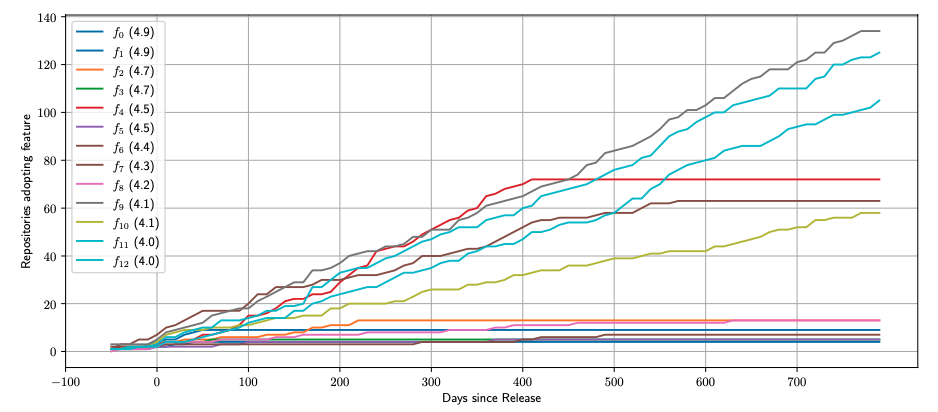Typescript Feature Adoption
Reviewed by Greg Wilson / 2023-03-28
Keywords: Programming Languages, Typescript
I started programming full-time eighteen months ago after almost ten years of doing other things. The Python I came back to was not the Python I had left: the language had acquired so many new features that it felt more like Java than like the handy little scripting language I remembered. Those features all solve real problems, but I found myself wondering how many people actually use them.
This paper attempts to answer that question for Typescript by looking at the adoption of 13 new language features over the past three years by 454 open source projects. The authors found that developers are quick to adopt new versions of the compiler, but much more conservative about features, and that some see little uptake even in the long run. I don't know if it would be possible to build models or develop methods to predict which features were going to prove popular, but I hope work like this will encourage language developers to ask, "Will it be used?" as well as, "Would it be useful?"
Joshua D. Scarsbrook, Mark Utting, and Ryan K. L. Ko. Typescript's evolution: an analysis of feature adoption over time. 2023. arXiv:2303.09802.

TypeScript is a quickly evolving superset of JavaScript with active development of new features. Our paper seeks to understand how quickly these features are adopted by the developer community. Existing work in JavaScript shows the adoption of dynamic language features can be a major hindrance to static analysis. As TypeScript evolves the addition of features makes the underlying standard more and more difficult to keep up with. In our work we present an analysis of 454 open source TypeScript repositories and study the adoption of 13 language features over the past three years. We show that while new versions of the TypeScript compiler are aggressively adopted by the community, the same cannot be said for language features. While some experience strong growth others are rarely adopted by projects. Our work serves as a starting point for future study of the adoption of features in TypeScript. We also release our analysis and data gathering software as open source in the hope it helps the programming languages community.